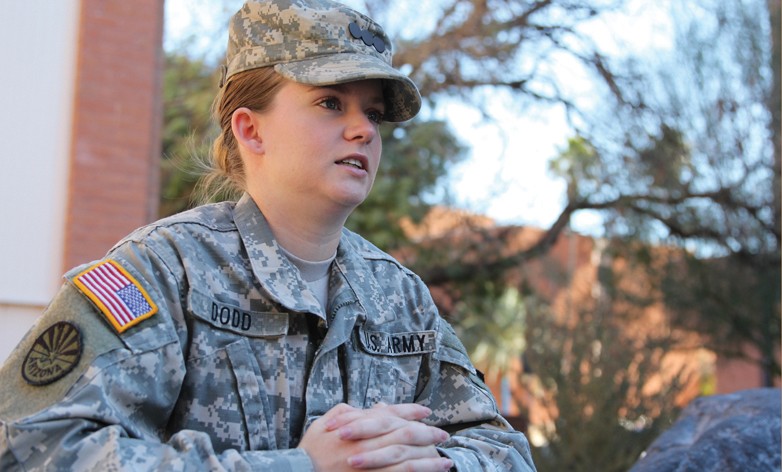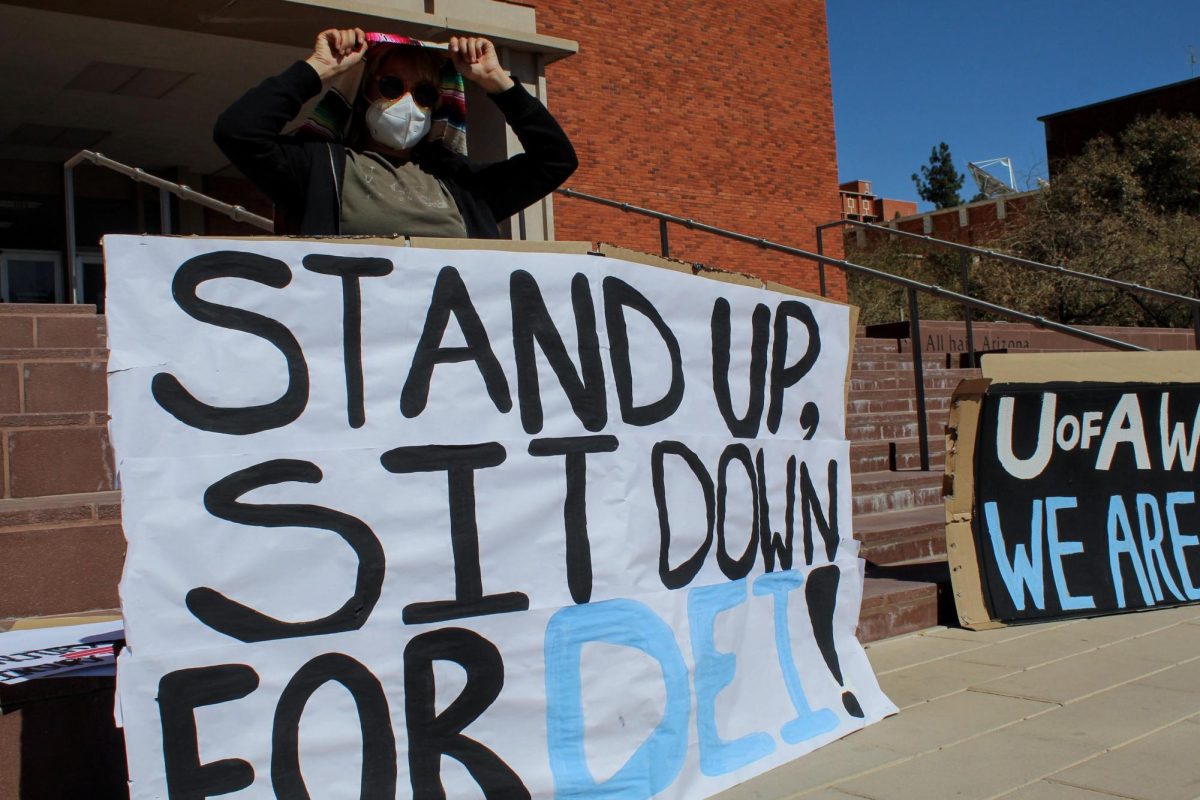A U.S. Army infantry unit from the 82nd Airborne Division leaves Kandahar Airfield in Afghanistan well after sunset on its way to search a small town east of Kandahar for enemy combatants. Shortly after leaving the city, the lead truck hits a roadside bomb and is engulfed in flames, and immediately the convoy starts taking heavy machine gun fire from the west. The second truck in the convoy starts laying down fire on the enemy position with the truck’s .50-caliber machine gun.
The soldier in the turret engaging the enemy is a woman.
This scenario could soon be a reality after a recent announcement from the U.S. Department of Defense that there are plans to remove “gender-based barriers to service.” Each branch of service is expected to submit a plan on how to enact this change by May 15, and the Department of Defense plans on having the military fully integrated by the beginning of 2016, according to a Department of Defense press release.
“Women have shown great courage and sacrifice on and off the battlefield, contributed in unprecedented ways to the military’s mission and proven their ability to serve in an expanding number of roles,” Secretary of Defense Leon E. Panetta said in a press release.
UA ROTC female cadets, and women all over the nation, will now have the opportunity to serve in combat positions that have been historically closed to women.
UA Army ROTC Cadet Amy Dodd, a senior studying political science, Russian and psychology, will become an officer at the end of the semester. She said she is going to become an air defense artillery officer and that she wouldn’t have done anything differently if this change had come earlier.
“They [military instructors] always tell us when you show up to your [military] unit, they will respect your rank, but you still have to earn their respect as a person,” Dodd said. “That might be difficult because I know females showing up to units, they will respect their rank but, especially if they are the first females showing up to that unit ever, that might be a little more difficult for them to be respected and trusted as actual leader of them [combat arms soldiers].”
Christina Sciabarra, a UA graduate student studying political science and a naval officer, graduated from the U.S. Naval Academy and served in support of Operation Iraqi Freedom in Iraq before coming to the UA. Sciabarra said she sees leadership challenges as universal and not specific to combat or non-combat roles.
“I think for leadership, the challenge is the same. So it is not this new idea of like ‘Oh no, women are in combat positions. What do we do?’” Sciabarra said. “The combat is not the part you have to manage. It’s the personal interactions and social interactions when you are not in the middle of something [combat] that requires, I think, more leadership and is more of a challenge and that is not really something new.”
There might be logistical problems with this new change, according to Sciabarra, but these problems can be overcome.
The military lowered the standards in a lot of areas to help increase the size of the military for service overseas, Sciabarra said.
“Standards are set. People have to live up to those standards, whatever their gender, and let’s focus back on people creating competent soldiers, sailors, Marines, airman who can do their jobs,” Sciabarra said.
UA Army ROTC Cadet Kaitlyn Harrell, a sophomore studying political science and Arabic, said she hopes to become a military intelligence officer, an infantry officer or an armor officer once she graduates, and according to Harrell, she can out perform many male ROTC cadets physically.
Harrell told a friend, who is an infantry officer in the Army, that she might be interested in becoming a combat arms officer after graduation. The friend, who had also been very upbeat and supportive of her being in ROTC, did not like the idea of her being in combat, according to Harrell.
“It is that whole male aspect to protect the female. It is odd for an officer or any soldier in that case. I mean, they have a woman standing next to them. They have little sisters or a wife or something like that,” Harrell said. “They are going to feel that need to protect and I understood that.”
The UA ROTC program declined to comment on the new change to the role of women in combat positions.









